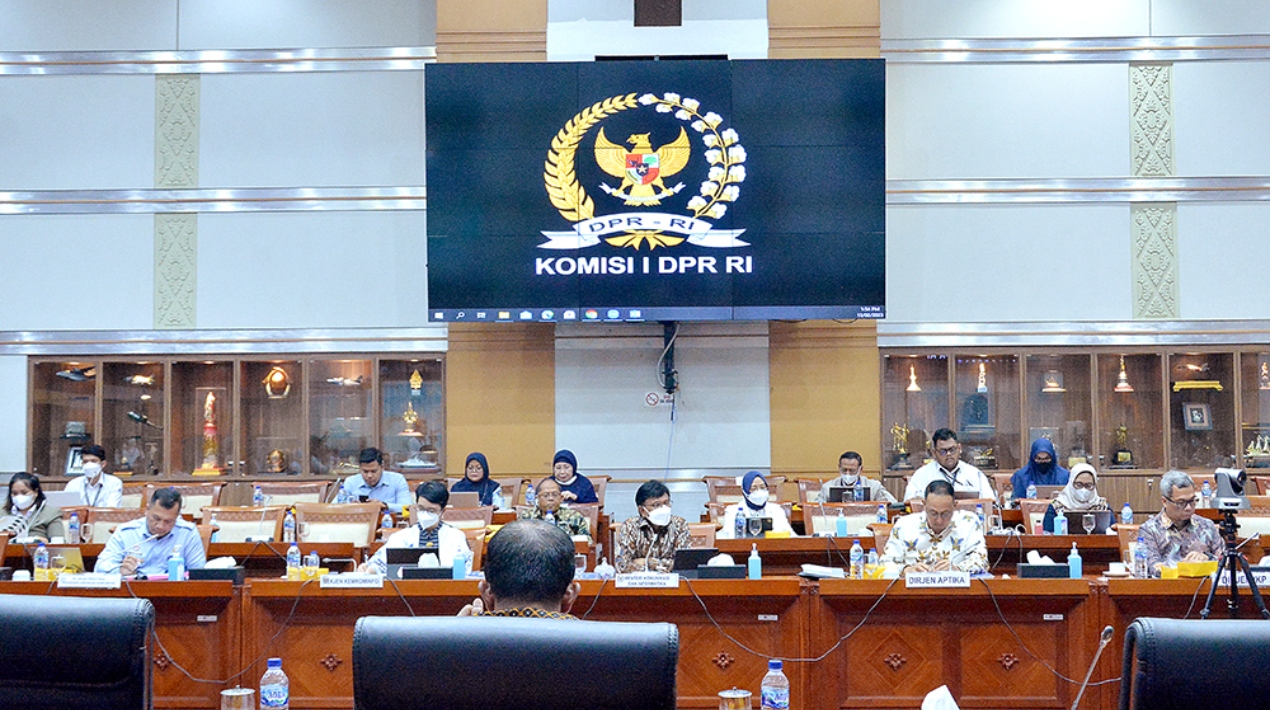
The Indonesian government has proposed a draught law amending Law Number 11 of 2008 on the Electronic Information and Transactions Act (ITE Act). The suggested amendment draught has been amended following Law Number 1 of 2023 on the Criminal Code (UU KUHP).
Johnny G. Plate, Minister of Communication and Informatics, indicated that the modification addressed existing implementation demands and community dynamics. Johnny believes that the ITE Law, in principle, has two primary materials: the installation of electronic systems and transactions and cybercrime legislation. The act refers to the Budapest Convention on Cybercrime and renews criminal law rules by giving them an online context.
“Because the proposed draught amendments to the ITE Law were submitted before the Criminal Code Law was ratified, it is necessary to harmonise the draught amendments to the ITE Law with the Criminal Code to make changes to the ten materials,” he announced at the Ministry of Communication and Informatics Work Meeting with Commission I of the Republic of Indonesia’s House of Representatives, in South Jakarta.
Johnny confirmed that the Ministry of Communication and Informatics publicly discussed the ITE Law last year. One of the key points from the public discussion was feedback so that the second revision of the ITE Law should include the Norms of Restorative Justice.
“This idea is intended to be incorporated into the ITE Law as an effort to address criminal crimes that are complaint offences in Article 45 paragraph (5) of the ITE Law related to the application form of Restorative Justice,” he explained.
According to the Minister of Communication and Information, provisions in the ITE Law have been annulled and declared unconstitutional per Article 622 paragraph 1 letter r of the Criminal Code Law, including:
- Article 27, paragraph 1 concerns decency, and paragraph 3 relates insult and defamation,
- The provisions of article 28, paragraph 2 concerning hate speech based on SARA,
- Article 30’s rules against unauthorised access,
- Article 31’s provisions concerning interception or wiretapping,
- Article 36’s provisions about the amplification of punishment for causing injury to others,
- The provisions of Article 45 paragraph 1 concerning criminal sanctions for violations of Article 27 paragraph 1 about decency, and paragraph 3 with criminal threats to breaches of Article 27 paragraph 3 about insult and defamation,
- The provisions of Article 45 paragraph 2 related criminal threats against violations of Article 28 paragraph 2 of hate speech based on SARA,
- Article 46’s provisions with criminal threats to violations of Article 30 relating to unauthorised access,
- Article 47’s provisions concerning criminal threats against violations of Article 31 relating to interception or wiretapping, and
- The requirements of Article 51, paragraph 2 concerning criminal threats related to violations, as indicated in Article 36, describe increased penalties for causing harm to others.
Johnny expected this harmonisation to become a joint focus of the Indonesian government and parliament. Previously, in 2021, the government established implementation guidelines for specific articles of the ITE Law for law enforcement authorities at the investigation and prosecution levels to have the same understanding and uniformly apply criminal penalties for illegal content.
The Minister of Communication and Information of the Republic of Indonesia, the Attorney General of the Republic of Indonesia, and the Head of the Indonesian National Police have developed joint recommendations for implementing the ITE Law as a short-term strategy. In the long run, the Minister of Communication and Information with the government proposed a Second Draft Amendment to the ITE Law.
















